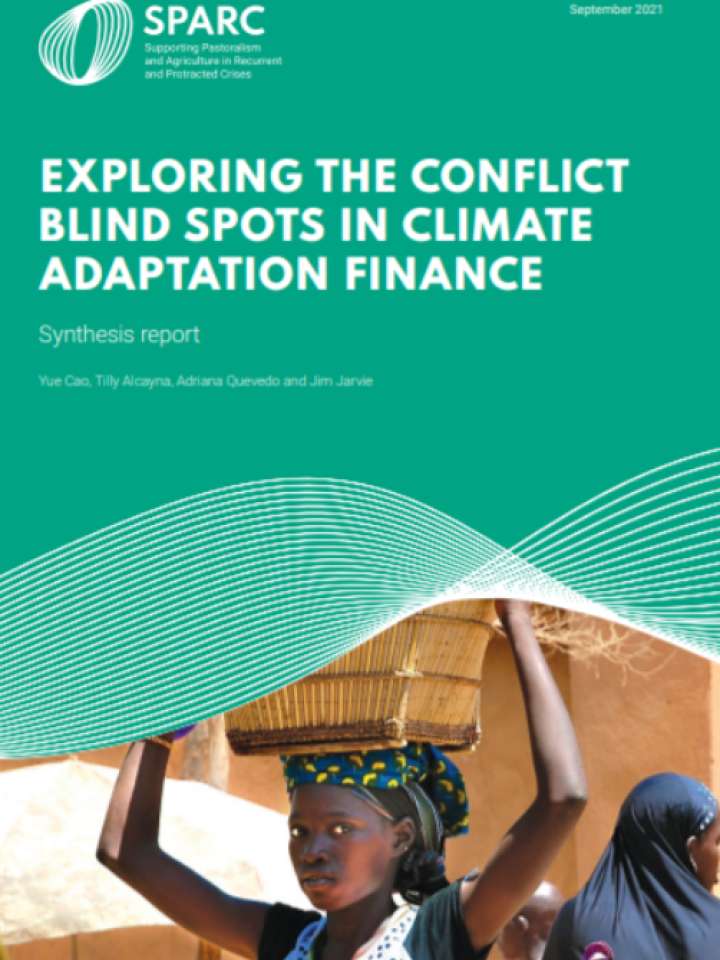Exploring the conflict blind spots in climate adaptation finance
This synthesis report explores whether and how climate adaptation programmes have been conflict-sensitive in fragile and conflict-affected situations (FCSs). It also examines the barriers and enablers to increasing adaptation finance to these contexts, and refers to these two issues as the ‘conflict blind spots’ in climate adaptation finance. The analysis is based on donors’ approaches to conflict sensitivity in the Sahel and Horn of Africa – a region with a large concentration of highly climate-vulnerable and conflict-affected countries – and a synthesis of findings from the application of such approaches to climate adaptation investments in Mali, Somalia and Sudan.
The study finds that there remains a lack both in donor strategies and policies linking climate change to conflict and fragility. Expertise and incentives to cultivate human resources for this nexus is similarly lackluster. Donors' commitment to avoid reinforcing conflict dynamics meant avoiding areas under armed conflict and leaving behind vulnerable populations. Critically, adaptation programmes missed opportunities for conflict prevention or resolution. To improve the design and delivery of climate adaptation programmes, these must be conflict-sensitive. Donors, governments, and implementing agencies must articulate the climate adaptation and conflict nexus in their strategies, improve guidance and capacities for conflict sensitivity analysis, ensure local stakeholders' participation in investment design and implementation, and create flexible operational protocols for implementation. Furthermore, coordination among donors must be improved, and donor modalities revised to provide capacity-building support for climate change adaptation. Support must also be prepared for improved public financial management systems, and ways to adapt access requirements in multilateral climate funds for FCSs must be actively explored.
Explore further
